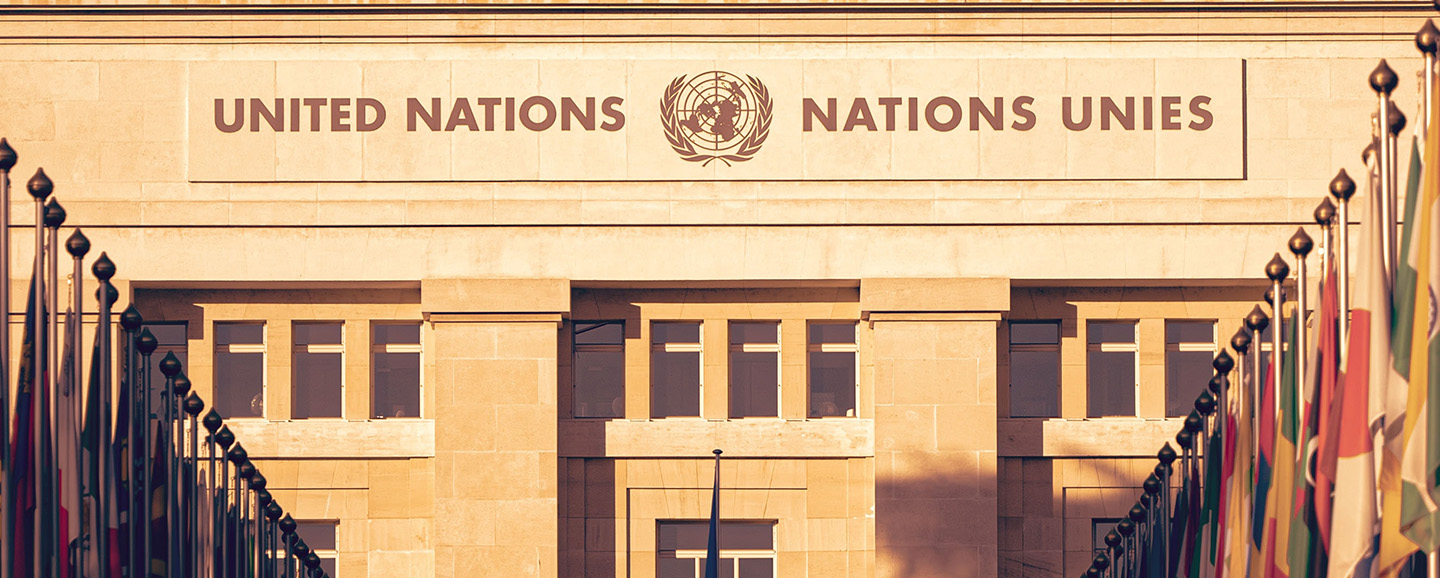Geopolitical competition is gaining ground as the perceived organising principle of international relations, as opposed to rules-based cooperation between interdependent states. Russia’s current aggression against Ukrainian sovereignty and territorial integrity seems to confirm this trend, proving right those who believe that international law is on its way to being replaced by the will of the strongest.
The notion of geopolitical competition also permeates the joint statement by China and Russia in Beijing on 4 February 2022, brimming with explicit or implicit criticism of the West. In it, China opposes for the first time the expansion of NATO and endorses the Russian proposal to establish ‘legal security guarantees’ in Europe (guarantees that, as articulated by Russia, in effect mean the recognition of a Russian zone of influence). Both countries, in line with Russian interests, oppose ‘colour revolutions’ (ie, pro-democratic movements) and, responding to Chinese anxieties, express serious concern over the Australia-US-UK strategic agreement (AUKUS) on the Indo-Pacific.
Moreover, the statement reflects the intention of the two powers to redefine the concepts of democracy and human rights according to their own interests. Both countries declare themselves opposed to ‘interference in the internal affairs of sovereign states under the pretext of protecting democracy and human rights’, invoking cultural and civilisational diversity to justify the existence of various ‘types of democracy’.
Human rights too, the statement continues, should be interpreted in the context of each country’s specific situation, and should not be used as an instrument to pressure other states. This idea, which has been advanced in particular by China in the framework of the Human Rights Council over the last few years, is diametrically opposed to the progress made in this regard since the Second World War, according to which human rights are a concern of humanity as a whole and from which no state can escape.
Finally, as regards the UN, the statement affirms that ‘Russia and China, as world powers and permanent members of the Security Council, intend to firmly adhere to moral principles and accept their responsibility, strongly advocate the international system in which the United Nations plays an essential role…, defend a world order based on international law…’, etc. The contrast between these words and Russia’s aggression against Ukraine and subsequent veto of the Security Council Resolution, as well as China’s abstention, could not be starker. Even starker is President Putin’s recent thinly veiled threat to use nuclear weapons, which contrasts with Russia’s recognition only a few weeks ago, along with the other permanent members of the Security Council, of its responsibility in preventing nuclear war.
These elements combined form a narrative that seems aimed at hollowing out and ultimately dismantling the rules-based international order as we know it, and requires a counter-strategy, not only from Western countries but from all members of the international community who reject the use of force as a means of resolving international disputes, the denaturalisation of human rights and the instrumentalisation of multilateral institutions. Fortunately, the international architecture put in place after World War II to protect these values and principles is holding up despite the attacks to which it is subjected.
Indeed, Russia’s veto against the Security Council Resolution on Ukraine should not overshadow the Resolution’s wide-ranging endorsement among UN member states and the strong reaction of the Secretary General of the Organisation, who has personally asked President Putin to halt military operations. On the contrary, the international mobilisation in favour of Ukraine has been impressive and has resulted, among other measures, in the suspension of Russia’s representation in the Council of Europe, the condemnation of the aggression by NATO, the EU, the Organisation for Economic Co-operation and Development, the Economic Community of West African States and the Chair of the Organisation for Security and Co-operation in Europe, the call by the Chair of the African Union for Russia to respect international law, the territorial integrity and national sovereignty of Ukraine, and countless expressions of condemnation by countries of the five continents. The EU, the members of the G-7 and other states have accompanied their statements with significant economic sanctions against Russia.
Confronted with Russia’s veto of the Resolution on Ukraine, the United Nations General Assembly (UNGA), in an emergency special session on 2 March, adopted a Resolution of historic significance on the aggression against Ukraine with 141 votes in favour, five against and 35 abstentions among the 193 UN member states. The Resolution, given its wide support, should be seen as an expression of the general sentiment of the international community.
The UNGA reaffirms its commitment to the sovereignty, independence, unity and territorial integrity of Ukraine within its internationally recognised borders, deplores in the strongest terms the Russian aggression (and the Belarusian involvement in it), which violates the United Nations Charter, and demands that Russia immediately cease its use of force and withdraw immediately, completely and unconditionally from Ukrainian territory.
Furthermore, it deplores Russia’s recognition of the Ukrainian regions of Donetsk and Lugansk in violation of Ukraine’s sovereignty and territorial integrity, demands that Moscow immediately and unconditionally reverses it, and calls on the parties to respect the Minsk agreements (which provide for the autonomy of these territories within Ukraine) and to work constructively within the relevant international frameworks.
Finally, it demands all parties to allow and facilitate rapid, safe and unimpeded access for humanitarian assistance to protect civilians, including humanitarian personnel, and people in vulnerable situations, and condemns all violations of international humanitarian law and of human rights. It should also be noted that in its preamble, the Resolution also condemns Russia’s decision to increase the readiness of its nuclear forces.
In addition, Ukraine has requested an urgent meeting of the Human Rights Council on the dire situation of its civilian population due to the Russian offensive, a meeting which (despite Russia and China voting against it) is due to take place on 3 March, and in which Russia will undoubtedly invoke its false claims of an alleged genocide in Donbas. This will thus be a new episode in the battle over the relevance of human rights in international relations, in which all available voices in defence of their universality, indivisibility and inalienability will be needed, including that of the US, whose absence until recently from the Council had weakened this position.
The aggression against Ukraine is also an attack on democracy, which is perceived as a menace by autocracies. A world in which democratically-elected governments can be toppled by their authoritarian neighbours is a world where democracy is under threat everywhere. An international response to the aggression in this field is also needed. In this context the Democracy Summit initiative, launched by the current US Administration, is more appropriate than ever.
In short, in the face of the aggression against Ukraine, the West has reacted with a high degree of cohesion and speed, which perhaps President Putin did not expect. But, beyond that, this crisis has highlighted a great cohesion of the international community as a whole, in defence of the principles and purposes enshrined in the United Nations Charter. The Ukraine crisis constitutes an assault on the current European order and an attempt to take it back to the times of the Cold War, but it is also an assault against an international order based on the principles of equality between states, territorial integrity and political sovereignty and against the principles of democracy and respect for human rights.
Negotiations have started between Russia and Ukraine. Even though there is a clear deficit of confidence of the international community towards Russia after it broke its repeated commitment not to invade Ukraine, negotiations must certainly be given a chance, but they should be conducted on the basis of these principles.
At a time when, under the label of geopolitics, it seemed that the new paradigm of international coexistence was leaning towards the law of the strongest, the international reaction to the Ukraine crisis is a vindication of the multilateral, international architecture. The Resolution adopted by the UNGA on 2 March is the embodiment of the international community as a whole awakening to the need to protect the current rules-based international order in the face of attempts to undermine it.
Image: United Nations Headquarters in Geneva, Switzerland. Photo: Jonathan Ansel Moy de Vitry.



